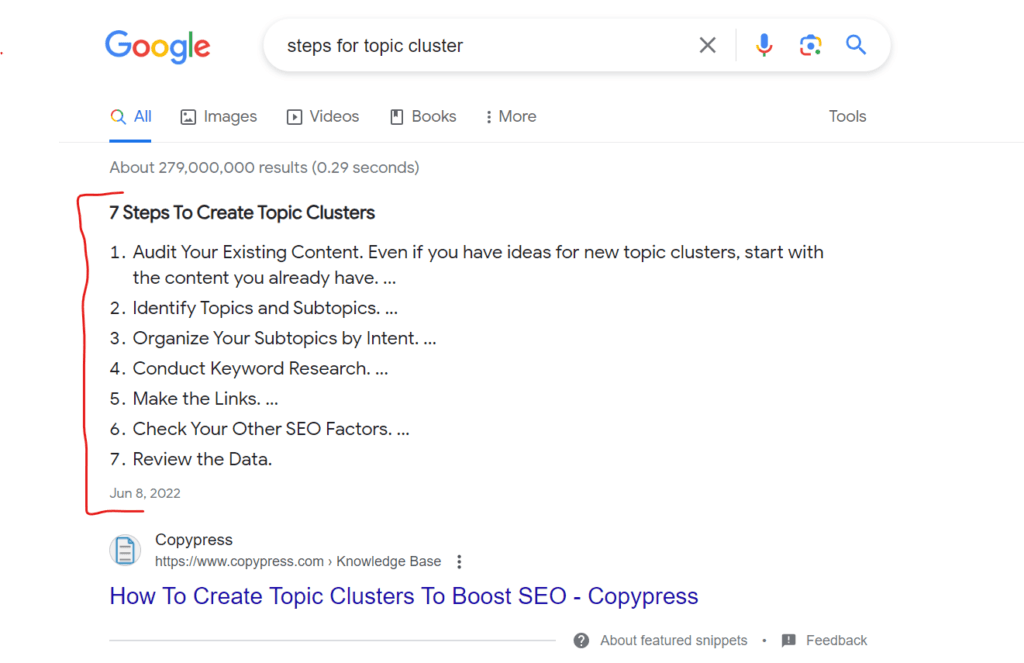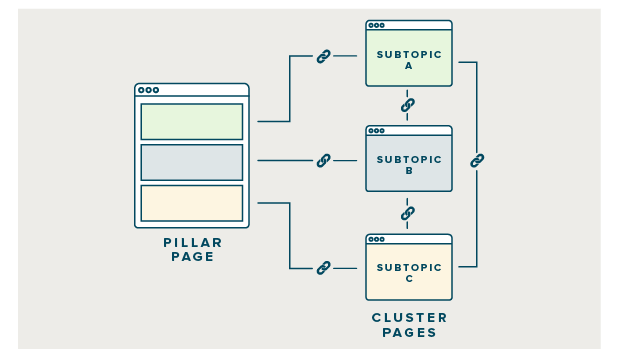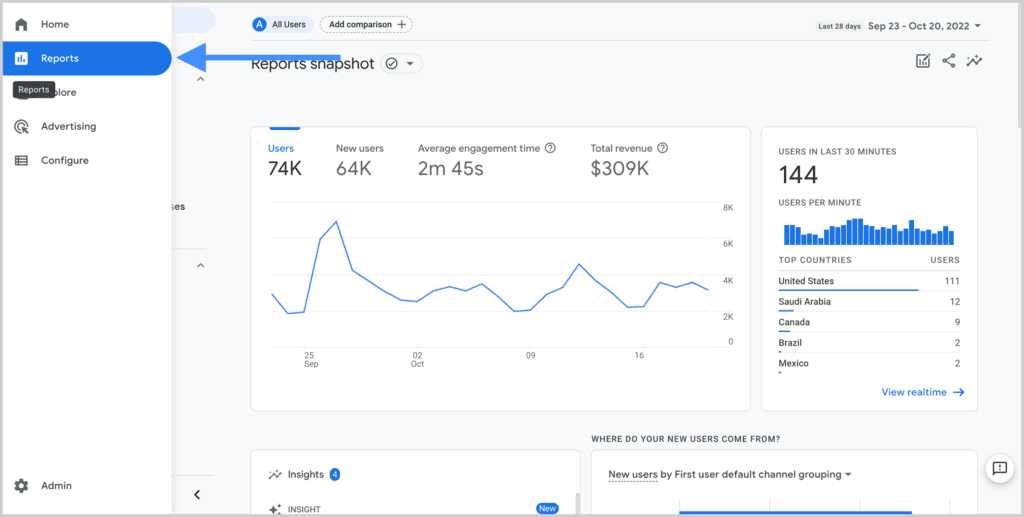Ultimate Semantic SEO Guide 2024
Key takeaways
What is Semantic SEO?
Semantic SEO is a contemporary SEO technique that focuses on the meaning and intent behind search queries rather than just the keywords used.
It's about understanding the user's intent behind a search query and providing them with the most relevant and informative content, regardless of whether or not they use the exact keywords searched.
For instance, if a user searches for "best laptops for students," a traditional SEO approach might involve stuffing the website with keywords like "laptop," "student," "affordable," and "lightweight."
However, a semantic SEO approach would involve understanding that the user is looking for information on laptops that are suitable for students, such as their budget, portability, and battery life.
The website would then provide comprehensive content that addresses these needs, even if it doesn't use the exact keywords searched.
| Feature | Semantic SEO | Traditional SEO |
|---|---|---|
| Focus | Understands the meaning of words and how they relate to each other | Focuses on specific words and phrases to improve search engine rankings |
| Approach | Creates content that is relevant to what people are searching for | Creates content that is optimized for search engines |
| Content | Informative; written in a natural way that reader like | Keyword-rich; written in a way that search engines like |
| Optimization | Uses structured data and schema markup to help search engines understand the content | Uses keyword density, backlink building, and other techniques to improve search engine rankings |
| Outcomes | Improves user experience and leads to higher search rankings | Improves search rankings and can lead to increased organic traffic |
| Long-term viability | Adapts to changes in search engine algorithms | May require ongoing adjustments to maintain effectiveness |
| Overall goal | Creates content that is both useful to users and search engine friendly | Drives traffic to the website by ranking higher in search results |
Why is Semantic SEO So Important in 2024?
Semantic SEO is important for several reasons:
How to Implement Semantic SEO
There are a number of things you can do to implement semantic SEO on your website:
1. Understand user intent.
The first step to implementing semantic SEO is to understand the intent behind user queries. What are users looking for when they search for certain keywords?
When someone search for "Running Shoes" they want options not history. So you can create a content like "Top 10 running shoes for winter to keep you warm". As Winter is coming you this article will be most suitable, right?
For the query "best running shoes for beginners," analyze related terms like "running shoes for new runners," "running shoe recommendations for beginners," and "choosing running shoes for first-time runners."
To learn more about User Search Intent in SEO; you can read this article: What is User Intent in SEO?
Once you understand user intent, you can create content that is specifically designed to meet those needs.
2. Write content around topics, not just keywords.
Semantic SEO is about creating content that is relevant to the user’s search intent. Instead of focusing on individual keywords, try to write comprehensive content that covers a topic in-depth. This will help search engines understand the context of your content and rank it higher in search results
For example: A webpage about "best running shoes for beginners" should cover factors like foot type, terrain, budget, and user reviews, providing a complete guide for novice runners.
3. Use Semantic Keywords
Semantic keywords are words that are related to your main keyword. They help search engines understand the meaning of your content and its relevance to the user’s search query.
For example: In an article about "healthy eating habits," Semantic keywords could include "nutritious foods," "balanced diet," "meal planning," and "portion control."
Caution! Lot of people nowadays talking about LSI keyword, but in reality it a myth. To learn more about LSI keyword myth you can read: What are LSI Keywords and What I Use Instead of Them?
4. Optimize for entities
Entities are people, places, things, or concepts that are mentioned in your content. By optimizing for entities, you can help search engines understand the relationships between different entities and the context of your content.
For example, if you’re writing about “New York City,” you could also mention other entities like “Central Park” or “Statue of Liberty”
5. Use synonyms and related terms.
In addition to using your primary keywords, be sure to use synonyms and related terms throughout your content. This will help search engines understand the context of your content and provide more relevant search results.
6. Employ Structured Data
Structured data is a standardized format for providing information about a page and its content. By using structured data markup such as Schema, you can help search engines understand the content of your page and display it in rich snippets in search results
Recommended reading: What is schema & how to use it for SEO?
Example: Structured data can indicate the type of content (article, recipe, product), author, publication date, and other relevant information.
7. Optimize your content for Rich snippets
Search results with aligned Rich snippets are more likely to be clicked on by users, and they can help to improve the click-through rate (CTR) of a website.

Rich snippets are search results that are enhanced with additional information, such as images, videos, and reviews. Technically speaking, using schema markup results in rich snippets.
Google gets Rich Snippet data from Structured Markup (like Schema) in your page’s HTML.
Read more: What Are Rich Snippets & How Do You Get Them?
8. Optimize for "People Also Ask" Questions
Search your keywords or topic and see what people also ask regarding it, then address the common questions that users ask when searching for a topic, providing concise and informative answers.
For example: For a topic like "SEO tips for beginners," incorporate answers to questions like "what is SEO," "how to start with SEO," and "basic SEO techniques for beginners."

9. Optimize for "Related Searches"
Search your keywords or topic and see what are the related searches, then address the related searches providing concise and informative answers.

10. Optimize Your Content for Featured Snippets
Featured snippets are a type of Google search result that appears at the top of the search results page and provides a concise answer to a user's query.
They can be a great way to get your website more visibility and traffic from search engines.

Recommended Reading: How to optimize your content for featured snippets.
11. Build Topic Clusters
Organize content into topic clusters, linking related articles to create a comprehensive knowledge base around a specific subject.

A topic cluster is a group of interlinked pages or posts that cover a specific topic in-depth. By creating topic clusters, you can help search engines understand the structure of your content and its relevance to the user’s search query.
Read more: How to use Topic Cluster to Boost Your SEO
Example: A website about "digital marketing" could have topic clusters for SEO, social media marketing, content marketing, and email marketing, with each cluster containing
12. Utilize Internal Linking
Internal linking can help search engines understand the structure of your website and the relationships between your pages.
Use internal links to connect related pages and help users find the information they are looking for.

Example: In an article about "swimming for beginners," link to other articles on the website, such as "swimming benefits for beginners" and "yoga tips for home practice."
13. Optimize On-Page Elements
Pay attention to on-page elements such as title tags, meta descriptions, headings, and image alt tags. Optimize these elements by including your target keywords and ensuring they accurately reflect the content on the page.
14. Optimize for Mobile
Ensure your website is mobile-friendly and responsive, as search engines prioritize mobile-friendly websites in their rankings. Optimize your website's loading speed, design, and user experience to provide a seamless mobile browsing experience.
15. Build Authority
Focus on earning high-quality backlinks from authoritative websites within your industry. This can be achieved through content promotion, guest blogging, influencer outreach, and building relationships with other website owners.
16. Monitor your performance
It's important to monitor your website's performance in search engines to see how your semantic SEO efforts are working.

Use tools like Google Analytics to track your website's traffic, rankings, and conversions.
Regularly review search performance data to identify areas for improvement and optimize content accordingly.
Semantic SEO Tools and Resources
To successfully implement semantic SEO strategies, a range of specialized tools and resources can prove invaluable.
These tools help in identifying highly relevant keywords, analyzing competitor content, and structuring website content in a way that resonates with search engines.
Here's a compilation of some essential semantic SEO tools and resources tailored to specific needs:
Keyword Research Tools:
Semantic Analysis Tools:
Schema Markup Tools:
Note: There are several WordPress Plugin that can Generate Schema for you, here are 3 - Yoast, Rank Math, All in one SEO.
Content Optimization Resources:
Remember, semantic SEO is an ongoing process that requires continuous refinement and adaptation to the evolving search engine landscape.
The Future of Semantic SEO
Semantic SEO is a relatively new concept, but it is already having a major impact on the way search engines work. As search engines continue to become more sophisticated in their understanding of natural language, Semantic SEO will become even more important.
In the future, we can expect to see search engines rely more heavily on Semantic SEO to deliver relevant results to users. This means that businesses that are not optimizing their websites for Semantic SEO will be at a disadvantage.
Here are some of the trends that we can expect to see in Semantic SEO in the future:
By keeping up with these trends, businesses can ensure that their websites are optimized for Semantic SEO and that they are able to attract more visitors from search engines.
Questions That Probably Brewing in your Mind
What is the difference between Semantic SEO and traditional SEO?
Traditional SEO is focused on optimizing websites for keywords. This means that businesses would try to stuff their websites with as many keywords as possible in order to rank higher in search results. However, this approach is no longer effective, as search engines are now more sophisticated in their understanding of natural language.
Semantic SEO, on the other hand, is focused on creating content that is relevant, informative, and engaging. This means that businesses need to think about the user's intent behind a search query and provide them with the information they need.
How can I measure the success of my Semantic SEO efforts?
There are a number of metrics you can track to measure the success of your Semantic SEO efforts. Some of the most important metrics include:
What are some of the tools that I can use to implement Semantic SEO?
There are a number of tools that you can use to implement Semantic SEO. Some of the most popular tools include:
What are some of the challenges of implementing Semantic SEO?
One of the challenges of implementing Semantic SEO is that it can be time-consuming and resource-intensive. It can also be difficult to measure the success of your efforts, as Semantic SEO is a relatively new concept.
However, the benefits of implementing Semantic SEO can outweigh the challenges. By optimizing your website for Semantic SEO, you can attract more visitors from search engines, improve your conversion rate, and build a stronger brand reputation.
Q: How can I improve my website's semantic SEO?
A: There are a number of things you can do to improve your website's semantic SEO, including:
Bonus Tips
Use topical authority to your advantage. Topical authority is the measure of a website's expertise in a particular topic. By creating high-quality content that is relevant to your target audience, you can establish your website as a topical authority. This will help you rank higher in search results for your target keywords.
Use structured data markup. Structured data markup is a way of providing search engines with additional information about your website's content. This can help search engines understand your content better and provide more relevant search results.
Get involved in the online community. Participating in online forums, social media groups, and industry events can help you build relationships with other professionals in your field. These relationships can help you gain exposure to your target audience and attract new visitors to your website.
By implementing the techniques mentioned in this article, you can improve your website's ranking, attract more visitors, and generate more leads.
Latest Posts
- Fixing Missing WooCommerce Emails and Delayed Renewals: Set Up a Real Cron Job
- Can a WordPress Website Handle 1 Million+ Traffic?
- How to Move ReCAPTCHA V3 Badge to Left in WordPress
- How to Setup WordPress Heatmaps (3 Simple Ways) Free + Premium
- WordPress Images Not Loading After Migration (Fixed)
Discover more from WpConsults
Subscribe to get the latest posts sent to your email.


